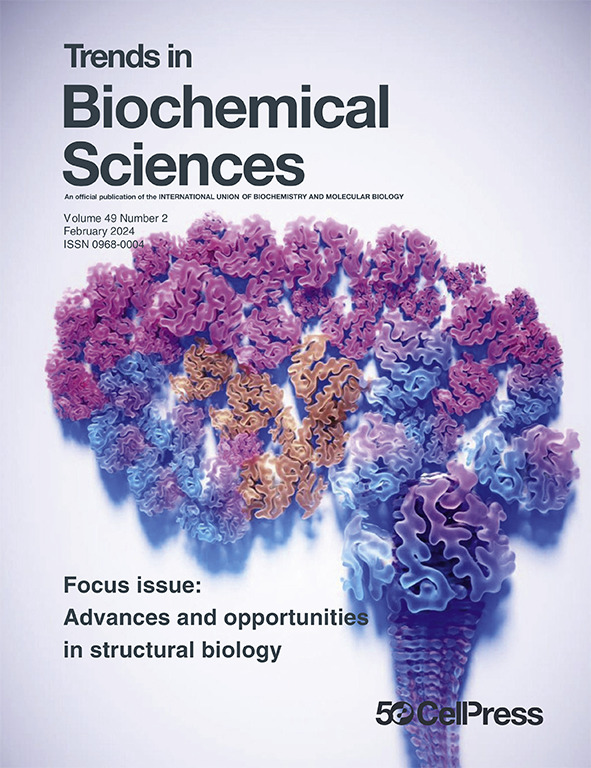肿瘤中的HIF轴:血管生成、代谢和免疫调节。
IF 11
1区 生物学
Q1 BIOCHEMISTRY & MOLECULAR BIOLOGY
引用次数: 0
摘要
缺氧诱导因子(hif)是细胞对缺氧反应的中心转录介质。HIF激活通常会对缺氧产生有益的生理适应性反应。然而,在实体肿瘤中,hif驱动的对缺氧的适应导致主要癌细胞信号轴的改变,包括那些调节血管生成、代谢和免疫调节的信号轴,这些信号轴深刻影响肿瘤进展。这篇综述描述了HIF在这些主要轴的调节中的作用,以及“HIF轴”对肿瘤进展和治疗反应的影响。目前和新兴的治疗针对这些轴也将讨论。本文章由计算机程序翻译,如有差异,请以英文原文为准。
The HIF axes in cancer: angiogenesis, metabolism, and immune-modulation.
The hypoxia-inducible factors (HIFs) are central transcriptional mediators of the cellular response to hypoxia. HIF activation typically drives a physiologically beneficial adaptive response to hypoxia. However, within solid tumors, the HIF-driven adaptation to hypoxia results in alterations within major cancer cell signaling axes, including those regulating angiogenesis, metabolism, and immune modulation, which profoundly impact tumor progression. This review describes established and recent findings of the role of HIFs in the regulation of these major axes, and the impact of the 'HIF axes' on tumor progression and response to therapy. Current and emerging therapies targeting these axes will also be discussed.
求助全文
通过发布文献求助,成功后即可免费获取论文全文。
去求助
来源期刊

Trends in Biochemical Sciences
生物-生化与分子生物学
CiteScore
22.90
自引率
0.70%
发文量
148
审稿时长
6-12 weeks
期刊介绍:
For over 40 years, Trends in Biochemical Sciences (TIBS) has been a leading publication keeping readers informed about recent advances in all areas of biochemistry and molecular biology. Through monthly, peer-reviewed issues, TIBS covers a wide range of topics, from traditional subjects like protein structure and function to emerging areas in signaling and metabolism. Articles are curated by the Editor and authored by top researchers in their fields, with a focus on moving beyond simple literature summaries to providing novel insights and perspectives. Each issue primarily features concise and timely Reviews and Opinions, supplemented by shorter articles including Spotlights, Forums, and Technology of the Month, as well as impactful pieces like Science & Society and Scientific Life articles.
 求助内容:
求助内容: 应助结果提醒方式:
应助结果提醒方式:


